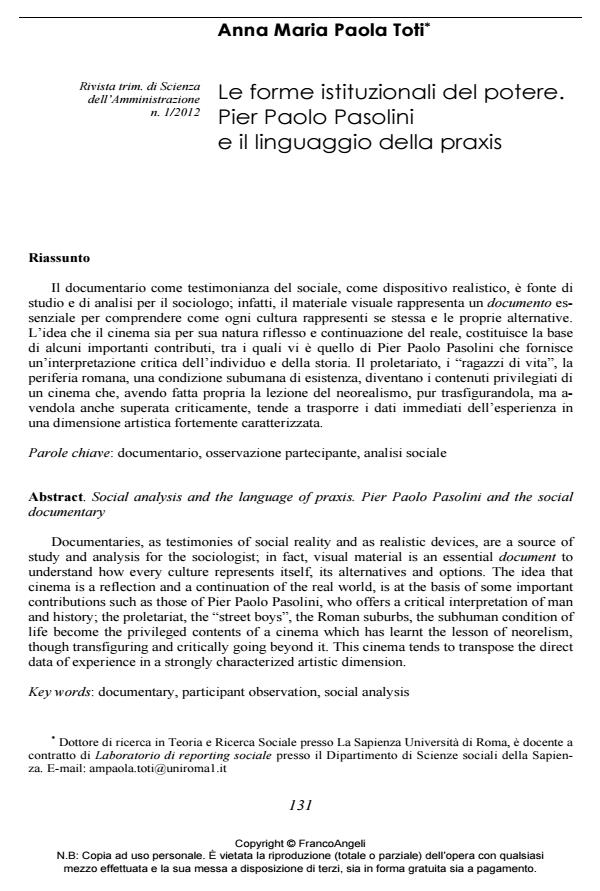Social analysis and the language of praxis. Pier Paolo Pasolini and the social documentary
Journal title RIVISTA TRIMESTRALE DI SCIENZA DELL’AMMINISTRAZIONE
Author/s Anna Maria Paola Toti
Publishing Year 2012 Issue 2012/1
Language Italian Pages 19 P. 131-149 File size 428 KB
DOI 10.3280/SA2012-001006
DOI is like a bar code for intellectual property: to have more infomation
click here
Below, you can see the article first page
If you want to buy this article in PDF format, you can do it, following the instructions to buy download credits

FrancoAngeli is member of Publishers International Linking Association, Inc (PILA), a not-for-profit association which run the CrossRef service enabling links to and from online scholarly content.
Documentaries, as testimonies of social reality and as realistic devices, are a source of study and analysis for the sociologist; in fact, visual material is an essential document to understand how every culture represents itself, its alternatives and options. The idea that cinema is a reflection and a continuation of the real world, is at the basis of some important contributions such as those of Pier Paolo Pasolini, who offers a critical interpretation of man and history; the proletariat, the “street boys”, the Roman suburbs, the subhuman condition of life become the privileged contents of a cinema which has learnt the lesson of neorelism, though transfiguring and critically going beyond it. This cinema tends to transpose the direct data of experience in a strongly characterized artistic dimension.
Keywords: Documentary, participant observation, social analysis
Anna Maria Paola Toti, Le forme istituzionali del potere. Pier Paolo Pasolini e il linguaggio della praxis in "RIVISTA TRIMESTRALE DI SCIENZA DELL’AMMINISTRAZIONE" 1/2012, pp 131-149, DOI: 10.3280/SA2012-001006